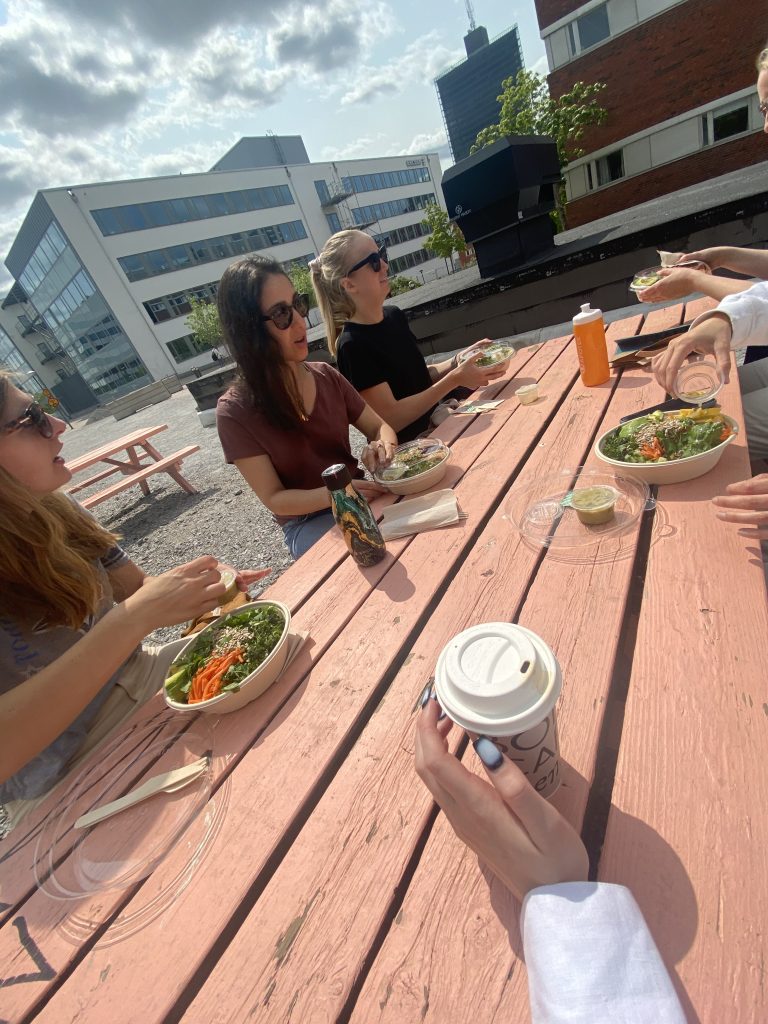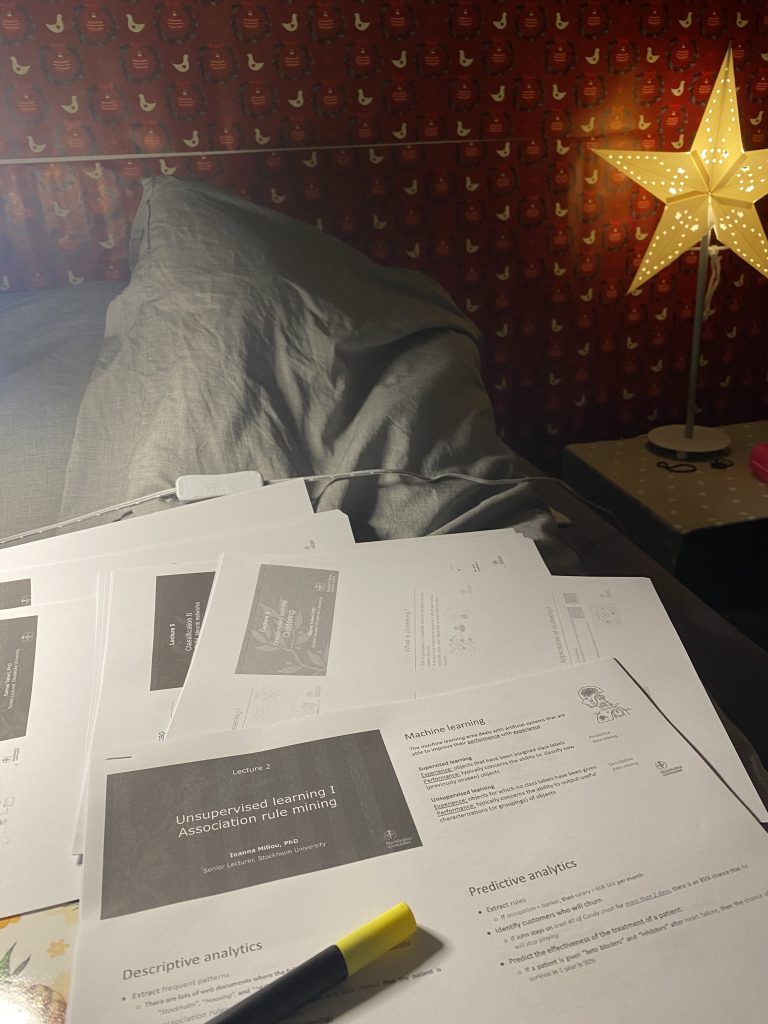
MSc in Health Informatics spring semester review
The first year of the MSc in Health Informarics is now behind me. It was an unforgettable time in which I made wonderful new friends, learned about Swedish culture and traditions, and visited some beautiful places in Sweden. A summary of the second semester of the first year of my studies is not to be missed. I published the review of autumn semester in January. Today I invite you, dear reader, to read about more lessons and courses I took in the last few months!
Overview of the spring courses
To sum up, this semester was more demanding than the first and required more work. I spent long hours studying for each course. However, thanks to friends, shared learning and support, we got through this semester together unscathed and are ready for the next semester and the challenges it will bring us!

User needs, requirements engineering and evaluation
The first course of the new semester made the entry into the new year 2023 and the new semester quick and painless. The course itself was dedicated to user needs. The classes were interesting because they were mostly projects! My favorite way to learn is actually doing my own projects. We were divided into groups, in which we had to think up and make an application project, present an idea that would solve a selected problem presented by the class instructors.
We figured out what our designs should do and how they should perform. It’s like building a roadmap that guides us in creating something useful and practical. We listened to user feedback (teachers) and made improvements based on their suggestions.
It was the most creative classes this semester! We could feel like real creators. This course taught me the importance of considering user needs, turning them into clear requirements, and constantly improving our designs through evaluation.
Standardisation within health informatics
The second course was a bit more challenging (at least for me). I think it was a course that will undoubtedly be useful in future work as health informaticians. Standardisation is all about making communication between different healthcare systems easier and improving patient care. By using common rules and protocols, healthcare providers and systems can exchange information accurately and quickly. This saves time and ensures that healthcare professionals have the right information to provide better care.

The course ended with a written exam, in addition, you had to pass practical group classes. It required not so much the learning itself, but an understanding of the exact processes between systems.
Data science for health informatics
Data Science course was extremely interesting. It allowed us to deepen our knowledge of programming and how now fashionable and interesting field of Machine Learning and AI! Data science allows us to analyze large amounts of healthcare data, like electronic health records and medical images.
By many of my friends this course was considered the best of the year. The classes were divided into labs and lectures, and the course itself ended with a written exam. In addition, you had to provide all the assignments from the labs and pass them. I think it was the most demanding, but at the same time the most rewarding course of the whole year. Many people from our year are interested in writing their master’s theses in this area.

Scientific research methods
The last course of the semester was one of the easiest. It consisted of writing assignments on a topic we had previously chosen. Scientific research methods are the tools and techniques we use to study and explore the world around us. They help us ask meaningful questions, design experiments or studies, and collect data to find answers. The texts had to be written in a scholarly manner, which, in my opinion, perfectly prepares you for writing your master’s the following year.
The most interesting part of this course was the grading. Sure, the teacher himself graded our homework assignments, but we as students also graded them, according to a predetermined scale, to other students. This is called peer feedback.
Which course would you find most interesting? Let me know in the comments! 🙂

Anna Kroker - Health Informatics
My name is Anna and I'm 24 years old. I am from Poland. I am studying the Master's Programme in Health Informatics at Karolinska Institutet. I have always been interested in Scandinavian culture; fika time is one of my favourites! I like to bake, edit videos, and play basketball or chess in my free time. I'm also a Stephen King enthusiast. A fun fact about me is I don't have space for more books in my room!

0 comments